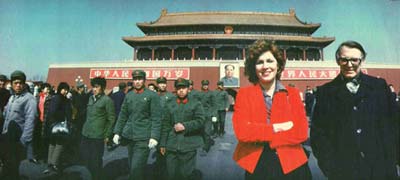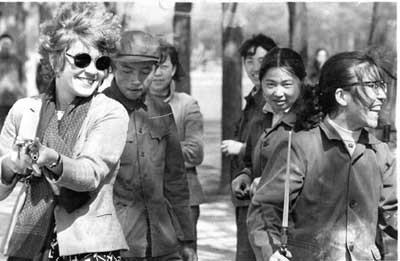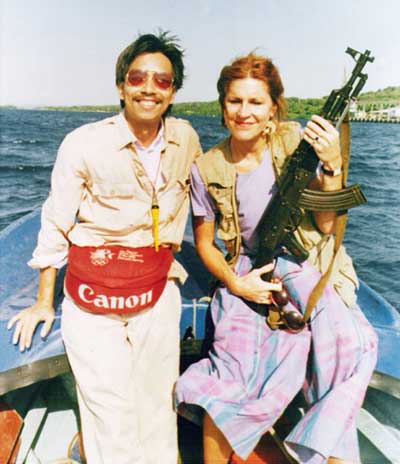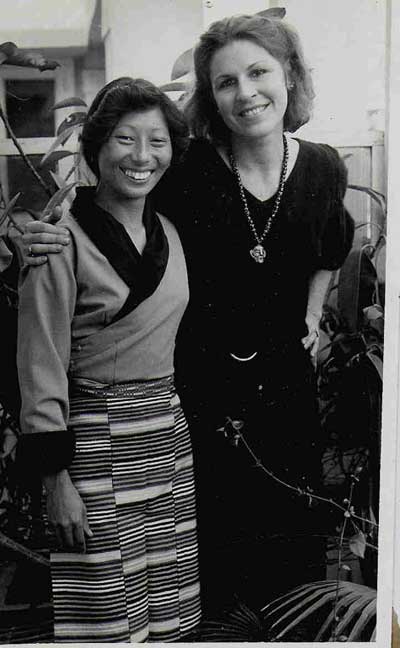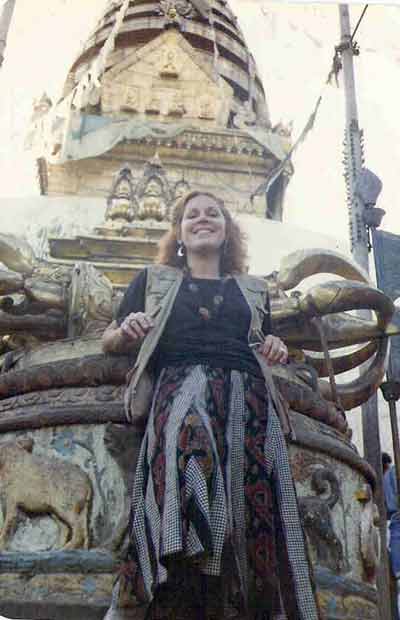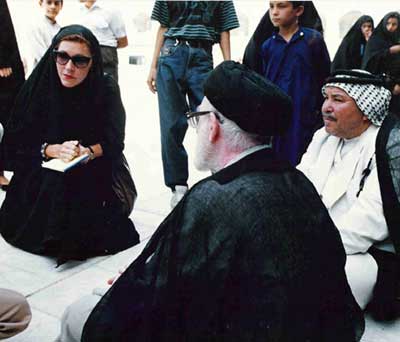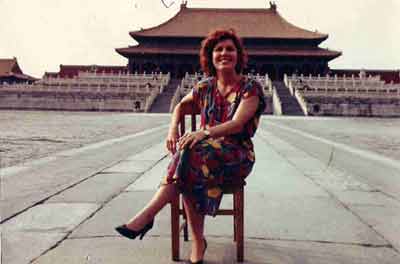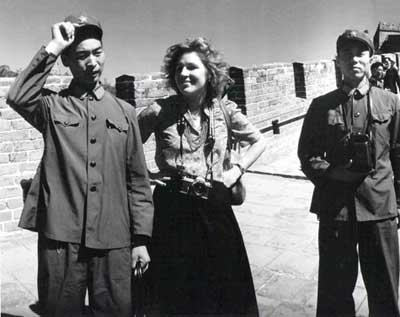| Home / Living in China / Expat Tales | Tools: Save | Print | E-mail | Most Read |
| Journalist's Career Came First |
| Adjust font size: |
From 1979-84, Victoria Graham frequently roared up to the Great Hall of the People on her Chang Jiang motorcycle plus sidecar, writes Douglas Williams. As a senior international correspondent for The Associated Press, Victoria Graham was at the very top of her game.
Victoria Graham and AP Foreign Editor Nate Polowetzky in early 1980s.
The time was the 1970s and Graham, based out of the The call that was to change her life irreversibly came in 1979 from the group president. AP's late great Edwin Keith Fuller was planning a new "My heart leapt," says San Franciscan Graham. "I was over the moon; writing features was good but ultimately it wasn't satisfying enough. I just had to go." Touching down at
Graham holding a gun with young women's militia.
Now, 28 years later, Graham is back in In the Chinese capital she was tasked with stories about the basics. "There was a huge appetite for stories about simple things like how people lived, what their apartments were like, what were the stores like," says Graham. "It was fairly black and white then though. "The 'cultural revolution' (1966-76) had ended, people were wary of foreigners. Most wore very similar clothes. It was all pretty gray but fascinating nonetheless." Her stories went round the globe syndicated to thousands of media outlets. With all the major news providers setting up shop in "One of the 'biggest' stories was the opening of the first privately owned restaurant in
Graham and photojournalist HS Liu in Sri Lanka returning from a trip visiting Trincomalee, covering civil war.
Graham traveled extensively at that time and her travels brought her to Back during her first sojourn in the Middle Kingdom Graham was riding around on a After four and a half years in Again Graham spent most of her time on the road. "It was constant work and I loved it," says Graham. "I never rode any camels or saw any tigers and if I ever went to Graham returned to In November 1994, having joined UNICEF as a senior communications officer, Graham was posted to
Graham enjoys a quiet moment at Beijing's Tian'anmen Square.
The refugee camps in Graham describes the Graham landed back in
Graham and a Tibetan friend, Tashi, in New Delhi.
So far, says Graham, it's too early for her to get a proper "handle" on Shanghai but the quiet-spoken, hardworking woman wonders if there's enough "self-cultivation" going on. "I often ask people what they read, but people here don't seem to be reading much, and that's too bad -- reading is such a pleasure, there should always be time for a good book." she says.
Graham in Nepal.
Graham also thinks it's unfair to put so much family pressure on young women to find a husband and marry. "But that's just my opinion, from a different culture," says the worldly pragmatist. Life in
Graham interviews Iraqi clerics in Najaf after the first Gulf War.
Graham in Beijing's Forbidden City in 1980s after she and her photographer colleague interviewed Pu Jie, brother of China's last emperor Pu Yi, at sunset when the crowds had left. Then Graham took a seat.
Graham, photojournalist HS Liu (front) and Asian News Editor Richard Pyle onboard AP's Chang Jiang motorbike that Liu used in assignments.
Graham poses by soldiers at Beijing's Great Wall.
Victoria Graham Nationality: Age: 58 Profession: Journalist Picks and hates Watching sunset on the Bund, the lights on the Bund, the city lights are great any time. Line-jumpers Favorite way to spend a weekend? Wandering around the city, there's a lot to explore and savor, it changes so fast. What can be done to improve Leave that to (Shanghai Daily April 17, 2007) |
| Tools: Save | Print | E-mail | Most Read |
 |
| Related Stories |
